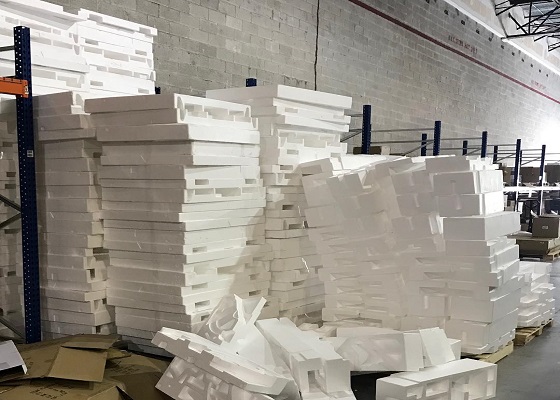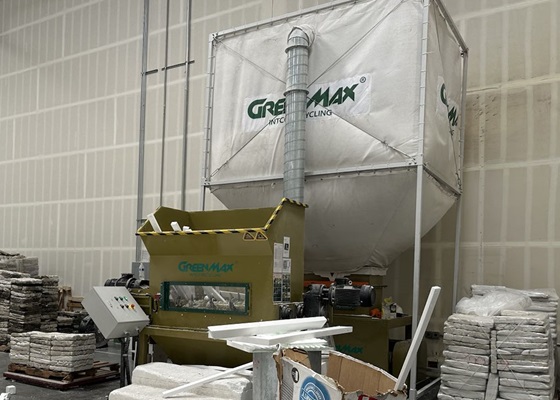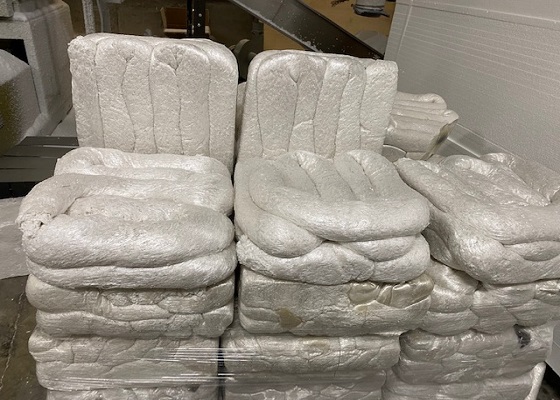Market, Policy and Other Factors Encourage Development of EPS Recycling
The world produces 53,000 metric tons of plastic every hour, 1.3 million metric tons per day, and 460 million metric tons per year, almost all of which comes from fossil fuels, including expanded polystyrene. Some people want to simply ban the use of EPS, but in fact, through EPS recycling, the foam will continue to repeat the circular economy and will not remain in the environment.
Foam pollution is a scourge, but reducing society's production and use of expanded polystyrene may not really solve the problem. After all, EPS foam has many benefits, which is cheap, and is widely used in industries such as packaging, automotive, and construction. EPS recycling can keep waste foam in the economy and make foam a renewable resource. The Global Expanded Polystyrene Sustainability Alliance points out that there is evidence that at least 30% of EPS can be recycled in Europe and Japan, which is used to make products such as coolers and packaging. In addition, Grist's interview with Betsy Bowers, executive director of EPS-IA, also shows that EPS recycling program can have a great positive impact on the use of plastics.

Fortunately, many factors have promoted the circular economy and foam recycling of EPS. The American Plastics Manufacturers Association supports the requirement of 30% recycled content in plastic packaging by 2030 and 100% recycling or reuse of plastic packaging by 2040. The "Extended Producer Responsibility" (EPR) system requires companies that manufacture and sell plastics to pay for the collection and recycling of the waste they generate. In addition to these policy incentives and requirements, the market has also played a great role in promoting EPS recycling. Companies can establish an environmentally friendly ESG image by conducting foam recycling, which will undoubtedly increase their competitiveness in the market, and consumers generally prefer environmentally friendly products. Therefore, the demand for recycled EPS materials in the market is becoming more and more vigorous, and how to properly conduct EPS recycling has become a hot issue.

For ordinary enterprises and communities, investing in a foam densifier will enable them to carry out foam recycling. The byproducts produced by this EPS recycling machine can be sold to local recyclers or INTCO Recycling to make foam recycled particles. Foam densifier is an EPS recycling machine specially used for reducing the volume of foam. It can compact lightweight foam into dense foam ingots at a ratio of 90:1. Foam densifier can effectively solve the transportation and logistics problems in the EPS recycling process and improve recycling efficiency. GREENMAX foam densifier developed by INTCO Recycling is highly automated, easy to operate and labor-saving. Recyclers only need to press the start/stop button to perform EPS compression. The EPS recycling machine controls the third-order hot melting temperature to melt the foam into foam ingots at high temperatures. The discharge port of the foam densifier can be equipped with an automatic cutting device. The high compression ratio and relatively simple operation of the GREENMAX foam densifier make it more popular with consumers than cold-press compactors and hydraulic compactors.
Additionally, INTCO Recycling provides a one-stop EPS recycling solution. Our engineers can provide timely online video communication to help you solve the use, maintenance, and repair of foam densifiers as soon as possible. And, INTCO Recycling also provides a user guide and video guidance for EPS recycling machines to help you perform foam recycling without worries.

